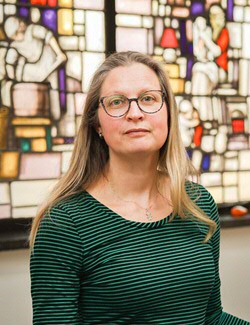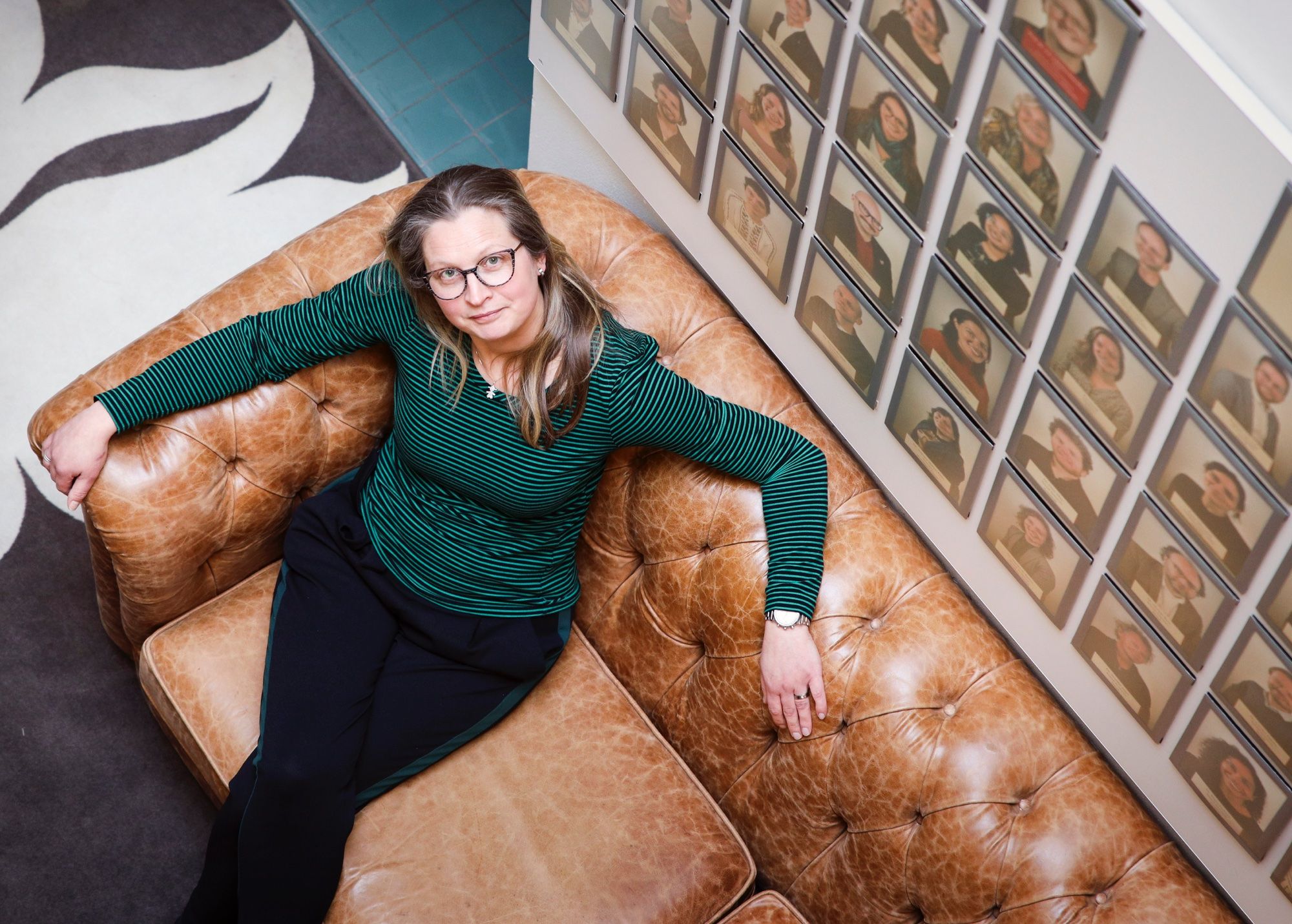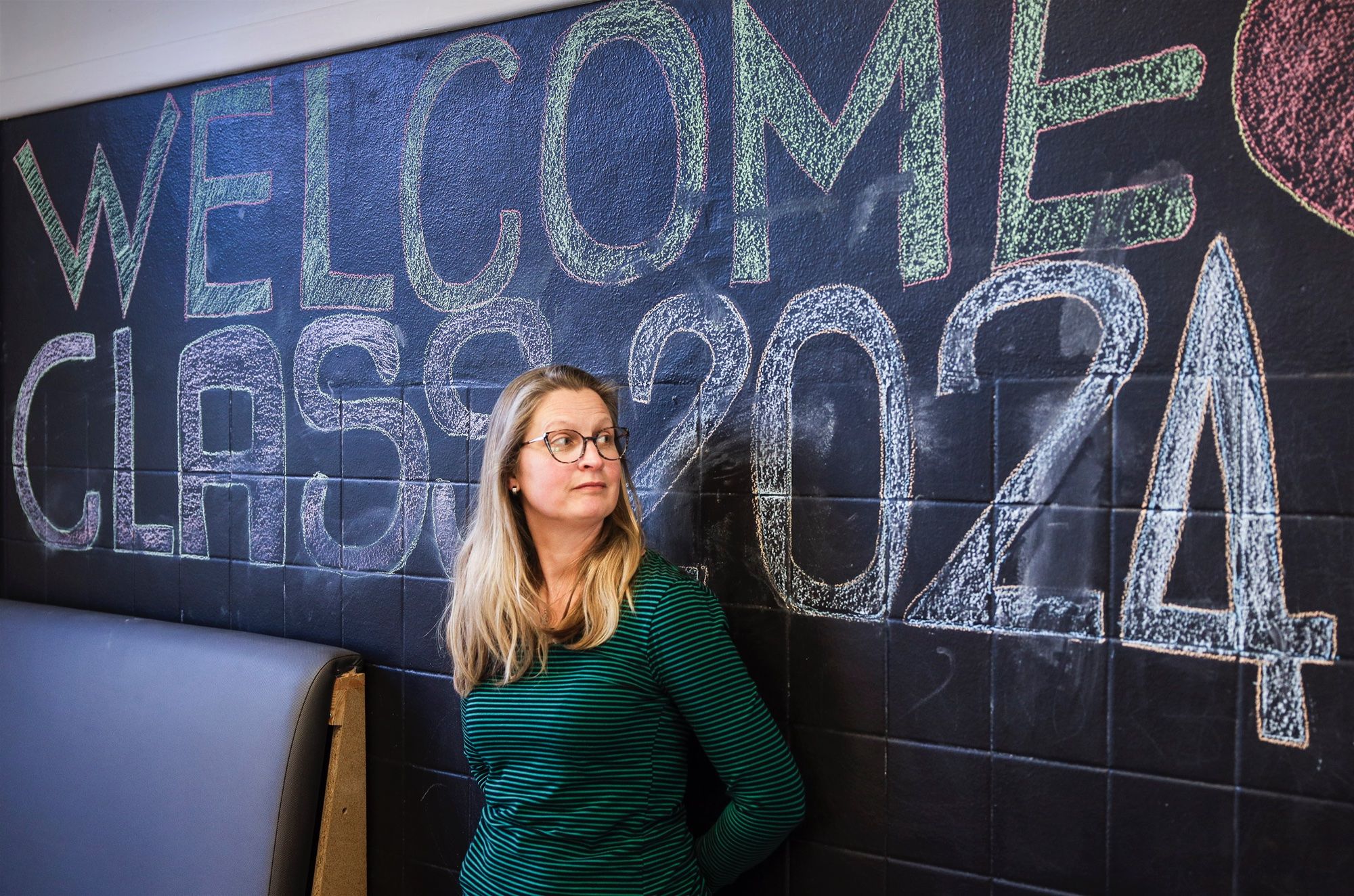‘Teaching is a core activity’
Inspiration and reflection for lecturers; that is what the University of Groningen Education Festival wants to offer. Dr Marline Wilders, who is involved in the Teaching Academy Groningen (TAG), explains why educational innovation is so important.
Text: Annerieke Bouma / Photos: Henk Veenstra

Communities of Practice
Marline Lisette Wilders, Assistant Professor of Arts in Society/Empirical Research Methods Humanities, started working as a Community of Practice Leader for the TAG on 1 February. The TAG is divided into seven Communities of Practice,* and Wilders is the Leader of the CoP on ‘Interdisciplinary education for employability, lifelong learning & citizenship’. ‘That is quite a mouthful; most people just call it Interdisciplinary Education,’ Wilders explains. The seven Leaders organize activities such as the Education Festival for everyone who performs teaching duties within the University. ‘Some lecturers may be more interested in interdisciplinary teaching, whereas others would like to know more about inclusiveness in classrooms with students of different nationalities or backgrounds,’ says Wilders.
Tips and tricks
The purpose of the Interdisciplinary Education is to connect people and thereby also make each other's contributions to interdisciplinary education more visible to colleagues among themselves. Wilders says: ‘You will probably know your direct colleagues pretty well, but the idea is to show lecturers what colleagues outside of their “inner circle” are doing.’ In response to the previous edition of the Education Festival, the people who made contributions in the field of interdisciplinary teaching got together and generated ideas to improve and implement such teaching. One of these ideas was to develop a toolbox for lecturers, containing related articles, workshops, syllabuses, or Open Educational Resources (OER) such as YouTube videos, TED Talks, websites, or materials developed by lecturers themselves (such as online lectures).
No body language
‘The coronavirus pandemic was an eye-opener; I really missed the contact with students.’ Teaching online in a setting that neither students nor lecturers were very familiar with sometimes led to strange situations, Wilders recalls. In the beginning, even conventions had to be reinvented. ‘For example, students were not supposed to show up in front of their webcams in their underwear.’ Wilders teaches small-scale classes, which means that she needs close contact with students to provide high-quality teaching. According to her, body language also says a lot: are the students enthusiastic? Interested? Or do they need a break? A lot of non-verbal communication is lost in an online setting, causing distortions along the line. Wilders therefore feels that the execution is equally important as the aim of a presentation. ‘And I find it important that students know this: when giving a presentation, you will have to provide good arguments for your standpoints, but how you get the message across also matters.’ This was more difficult to do online. In addition, students were less likely to indicate when they did not understand something. ‘This really created a barrier to the learning process,’ Wilders says.

Good teaching
‘Technically speaking, good teaching means that the learning outcomes are achieved in an efficient but also enjoyable way,’ Wilders states. In her opinion, it is important that the aims and learning outcomes of a course unit are determined in advance. At the degree programme level, students have to learn to think about and discuss the subject matter, and learn where they can find information. ‘Students must be able to hold their own in our continuously changing society.’ Students are the leaders and decision-makers of the future, Wilders states. Educational innovation will therefore always be necessary for the University to remain up-to-date. ‘I think that trying to keep up with innovations and wanting to optimally support their students and colleagues is also inherent to each lecturer’s character.’
Origin of the Education Festival
The Education Festival started with the wish to exchange more knowledge about teaching and teaching methods. According to Wilders, there are a lot of initiatives in the field of educational innovation, so it is a good idea to exchange information. The Education Festival is also the result of the fact that the University wants to show more appreciation for teaching. ‘Teaching was largely neglected for a very long time,’ Wilders states. Until recently, the careers of academics were not based on the teaching they provided, but on their research performance. However, teaching is one of the University’s core activities. Wilders thinks that the penny has now dropped that it deserves more attention. ‘It is good to convey the message that teaching is also important, and that is why the Education Festival is being organized.’ This year’s edition of the Education Festival will take place from 4 to 8 April.

‘Making connections’
The theme of the Education Festival, ‘Making connections for quality education’, deliberately ties in with the University of Groningen Strategic Plan, which is entitled ‘Making Connections’. ‘It is a broad concept, but particularly in the last few years it has become very clear that your world becomes very small if you are not in contact with society.’ TAG’s principle has always been ‘making connections’: bringing people from different faculties together. Wilders thinks that, although this may sound very logical, doing so is in fact quite difficult because people are in different groups and work with different regulations or different administrative units. ‘This principle really ties in with today’s ideas, because everyone is making connections.’
*Overview of the seven Communities of Practice: Blended learning, Inclusion and diversity, Teaching innovation in STEM (Science, Technology, Engineering, and Mathematics) education, Research into higher education, Wellbeing, Recognition and Rewards, and Interdisciplinary education for employability lifelong learning & citizenship.
More news
-
15 September 2025
Successful visit to the UG by Rector of Institut Teknologi Bandung
